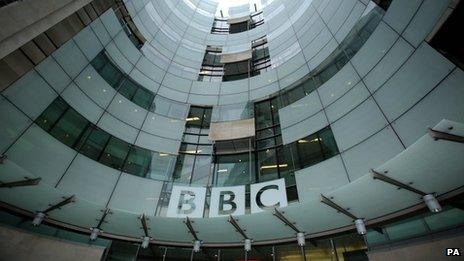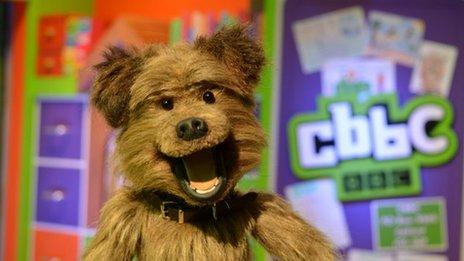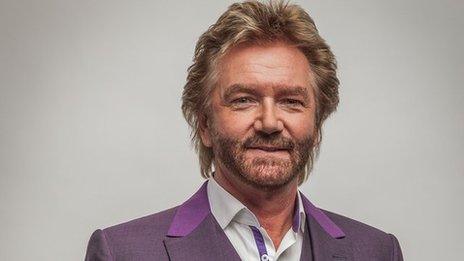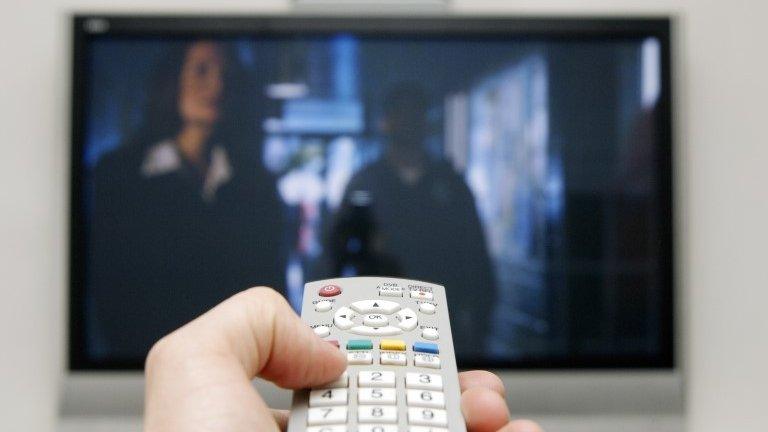Ministers back TV licence fee powers change
- Published

Non-payment of the TV licence fee can lead to a criminal record
Ministers have backed plans that would give them powers to make non-payment of the TV licence fee a civil rather than criminal offence, the BBC understands.
A Conservative MP proposed immediate decriminalisation - but ministers are backing a revised amendment giving them power to make the change in the future.
The amendment also proposes a review of penalties for non-payment, which must be completed within 15 months.
The BBC says decriminalisation could cost it £200m through greater evasion.
A TV licence, which is required if a user watches or records live broadcasts on any device in the UK, costs £145.50 per year.
Those who refuse to pay face a £1,000 fine and a criminal record, as well as the prospect of jail if fines are not paid.
A senior Downing Street source said Tory MP Andrew Bridgen, who tabled a proposal in the House of Commons to decriminalise non-payment, had "genuinely changed government thinking on the matter".
Mr Bridgen's original proposal - which was among amendments to the Deregulation Bill going through Parliament - aimed at forcing a vote on immediate decriminalisation. It was signed by 150 MPs.
Two-year power
Mr Bridgen has now tabled a revised proposal calling for a review of the "appropriate" sanctions for non-payment of TV licences. The review would have to be completed within 15 months of the Deregulation Bill being passed.
His amendments would also give ministers power under "statutory instrument" - meaning no further Act of Parliament was needed - to "replace the TV licensing offences with civil monetary penalties".
This power could be used only during a two-year period, starting from the completion of the proposed review. After that it would require approval by both Houses of Parliament.
The revised proposal will be considered at a parliamentary committee meeting on Tuesday.
A BBC spokeswoman said: "The BBC is content that this proposal balances a timely examination of this issue with a proper review of the options, while not taking any decisions prior to charter review."
The BBC's royal charter, which sets out the corporation's purposes and the way it is run, is reviewed every 10 years and the current one runs until the end of 2016.
The BBC Trust - which is the governing body of the BBC - said the licence fee issue should be "discussed in the round", taking account of the possible effect on BBC output.
It said any decisions should be made "as part of the charter review process".
"This amendment appears to be in line with that," it said.

The BBC says CBBC, CBeebies and BBC Four could close if licence fee evasion increases
Earlier this month, the corporation's strategy director, James Purnell, warned BBC channels could close if non-payment of the licence fee was decriminalised.
He said it would be a "huge risk" which would increase non-payment and cost the BBC £200m a year in lost licence fee revenue.
The sum is the equivalent to the costs of BBC Four, CBBC and CBeebies, which would have to be taken off air, he said.
His comments followed a decision to make BBC Three an online-only channel as part of ongoing cost-cutting measures.
On Friday, Mr Purnell said: "We do some research quite regularly and one of the things that people know is that at the moment it [non-payment of the licence fee] is a criminal offence and that does seem to be a deterrent. So we want something that is just as effective in future."
He said it could be "the current system under the amendment that has gone down", a civil system or a completely different system looked at in the context of charter review.
Culture Secretary Maria Miller has previously said "decriminalisation of the licence fee should be on the table" during the charter review.
With TV licensing cases accounting for 180,000 - or more than one in 10 - criminal prosecutions in 2012, decriminalisation could ease pressure on the courts system, Justice Secretary Chris Grayling has said.
Of those prosecuted in 2012, about 155,000 people were convicted and fined for non-payment.
- Published18 March 2014

- Published18 March 2014

- Published8 March 2014

- Published12 March 2014
